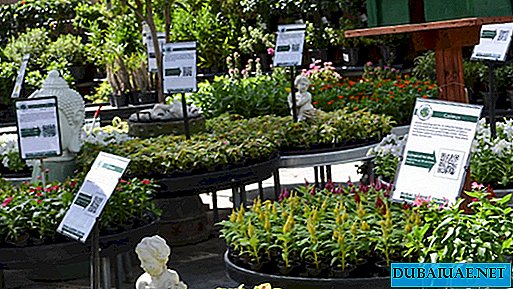 Text: Elena Grunitz
Text: Elena Grunitz ALL WE KNOW THAT LIFE WITHOUT WATER IS IMPOSSIBLE. IN EMIRATES, SAME - IN ONE OF THE HOTEST COUNTRIES ON THE EARTH - THE PROBLEMS WITH WATER SUPPLY FOR THE FIRST LOOK DOES NOT EXIST. FOUNTAINS, NUMEROUS IRRIGATED DEVICES FOR LAWNS AND PARKS, WATER FROM TAPPING WITHOUT RESTRICTIONS ... WE DECIDED TO FIND OUT WHERE IN THE DESERT SO MUCH WATER RESOURCES.
In vino veritas, in aqua sanitas (In wine - true, in water - health)
The first thought that comes to mind is the sea. Of course, the great advantage of the Emirates in their geographical position and the ability to use water from the sea. However, there are also groundwater reserves in the UAE, for example, in Ajman, Umm Al Quwain and Al Ain. The question is how it is processed, cleaned, desalted and what consequences this process is fraught with for our health. According to Anton Semenov, CEO of Biotal LLC from Ras Al Khaimah, a manufacturer and installation of water purification systems, most of the water used in Dubai and Abu Dhabi is actually taken from the sea. There are several water processing plants, each of which applies its own technology, whether it be filtration or evaporation. In any case, the initial water quality immediately after its processing does not cause concern.
On the contrary, the water meets all quality standards and is suitable for use "directly from the tap." But the problem is that while this water reaches the apartments, it will pass through pipes and drives in buildings, where the main dangers lurk - bacteria and heavy metals. And if the drive can and should be cleaned regularly, then with pipes everything is more complicated. In addition, it is difficult for residents of skyscrapers who have these drives to determine how regularly they are processed and cleaned by the owners of the building. Of course, the situation is aggravated by heat, which creates ideal conditions for the rapid growth of bacteria. In other emirates, such as Ajman, groundwater contains salt, and the filtration systems used to clean it are not always able to clean it completely. So sometimes Ajmans have to drink salted tea. And in Ras Al Khaimah, the local government even had to develop and legalize a whole system for the treatment of groundwater contaminated with sewage due to the lack of sewage in numerous private farms.
Bottle case
An important factor when choosing bottled water is packaging. Almost all bottles are made of plastic. And here you need to be careful, because the plastic composition includes not only the infamous chemical substance bisphenol-A (BPA), which is harmful to health, but also other toxins. Their release from plastic increases up to 50 times when heated, when, for example, we forget a water bottle in a car in the summer, or they stand in the sun when unloading, loading, or, even worse, when stored or transported incorrectly.
In the local heat, a few minutes in the sun are enough to start the process of intoxication of water from plastic. For this reason, many European countries are gradually abandoning this type of packaging, and in Canada and the United States even talk about a law prohibiting its use. But despite this, the global bottled water market is growing due to Asia, Australia, Africa and Eastern Europe, where packaging is not so urgent. So if possible, it is best to purchase water in a glass container.
"The wind blew us curly violent curls ..."
Many, having arrived in the Emirates, begin to complain that their hair is deteriorating and even falling out. Wine is often attributed to local water. So or is it? The leading specialist of the DHI Direct Hair Implantation medical group in Dubai, Dr. Dimitrios Ziakas, helped us to understand this problem: "Hair loss is primarily a genetically determined phenomenon. As you know, men are more prone to it than women. As for the side factors, not related to genetics or certain diseases, then yes, a large number of people in the Middle East, both men and women, have problems with hair loss, and this is primarily due to extreme weather conditions and not favorable environmental conditions and, as a result, dehydration of our body and stresses.The poor quality of the water used to wash our hair can aggravate the situation, but it is not the main factor. Most importantly, what we drink is because the presence of heavy metals in water harmful not only to hair, but to the whole body. "
Bad salt, good salt
Most of us, when buying this or that water, first of all look on the label for data on the content of sodium (sodium) - the lower the better. Of course, everyone knows about the dangers of excess salt. According to Dr. Kurt Lemberger, who works at the German Medical Center, the salt that is contained in drinking water or with which we lightly season our freshly prepared dishes is not as harmful to us as the latent salt contained in semi-finished and finished products.
Cheeses, cold meats, bouillon cubes, potato chips and much more - these are real salt bombs. And if you limit it to a minimum, and even better - remove such products of the food industry from the diet altogether, then you will not have to worry about the sodium content in drinking water either. After all, the salt itself and its benefits to our body are invaluable. Without sodium, which is part of it, the transfer of oxygen in the blood and the transmission of nerve impulses is impossible, and chlorine is necessary to create hydrochloric acid in the stomach. So the harm is not caused by the presence of salt in the body, but by its excess. And the fact that many people who come to the Emirates are starting to gain weight is most likely associated not with the quality of drinking water, but with reduced physical activity, because you can’t walk especially during the heat.
The United Arab Emirates is a very small country, but nevertheless they consume and consume more water than in many countries with a much larger population. This is mainly due to the rather low water tariffs intended only for UAE citizens, and the lack of an elementary desire to at least think a little about the environment. But having installed a system for processing used water at home, almost 95% of water waste can be reused for watering the site, which means not only significant financial savings, but also a responsible attitude to such an invaluable resource as water.
ARTIFICIAL RAIN. FUTURE ALREADY HERE
At the initiative of the UAE government in 2011, a group of Swiss scientists developed a project to create artificial rain. Instead of spraying silver chloride over existing clouds (this method is used in China and Israel), scientists installed metal umbrellas in the desert about 10 meters high, capable of charging air with electricity. The plants produce negative ions, which are directed into the air and combine dust particles, which are ideal for condensation of water present in the air. The formation of billions of tiny drops can form a cloud, which will become a source of rain.
The only condition for successful cloud formation is high humidity. The Swiss believe that their invention can replace very expensive seawater desalination plants. Using their technology, the production of 100 million cubic meters of fresh water will cost only $ 9 million per year, compared to $ 60 million spent on desalination plants.









